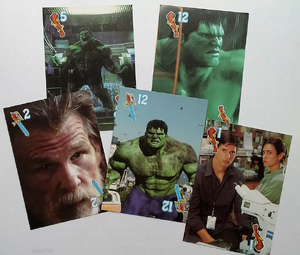Spanish-style playing cards

| |
| Spanish-style playing cards | |
| Designer | Various |
|---|---|
| Manufacturer | Various |
| Released | ~1390 - present |
| Added to Museum |
Hulk: September 27, 2024 |
Spanish-style playing cards, usually known globally simply as the Spanish deck (baraja española), are playing cards that contain the Spanish suits of bastos (clubs), copas (cups), oros (gold coins), and espadas (swords).
They typically come in 48-card sets with two Jokers, with numbered cards in each suit from 1 to 9, and the royal cards escudero (knave or jack), caballo (horse carrying a knight), and rey (king) in each set as well.
40-card sets with two Jokers are also popular. These cards are identical to the 48-card set, except the numbered cards 8 and 9 are removed.
History
Playing cards arrived in Europe from Egypt in approximately 1370. The Spanish suit pattern was derived from Italian suits in approximately 1390.
Spanish playing cards in video games
Card games using Spanish playing card decks have appeared in several video games.
Botifarra
Botifarra, a gambling game using Spanish-style playing cards, involves trying to beat the dealer by getting the closest to a blackjack, or a face count of 21.
Apps2dream released a Botifarra game titled ButiCard on Android.